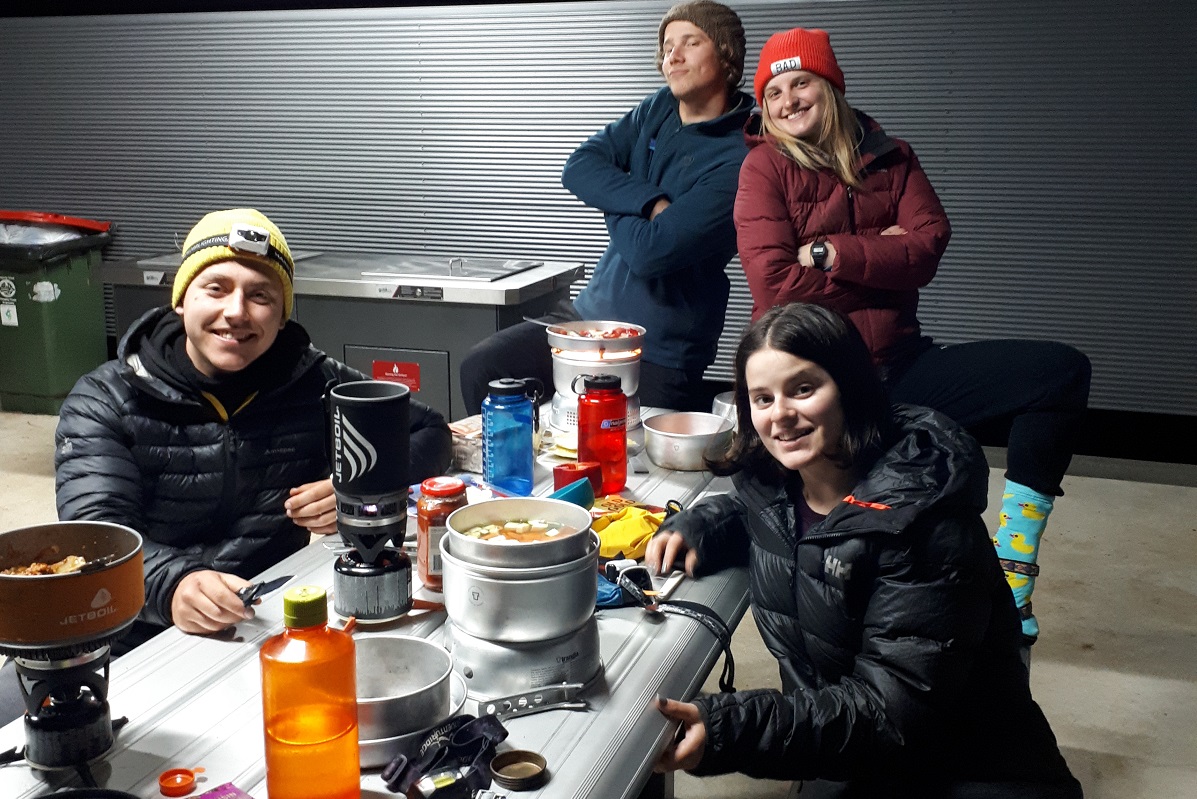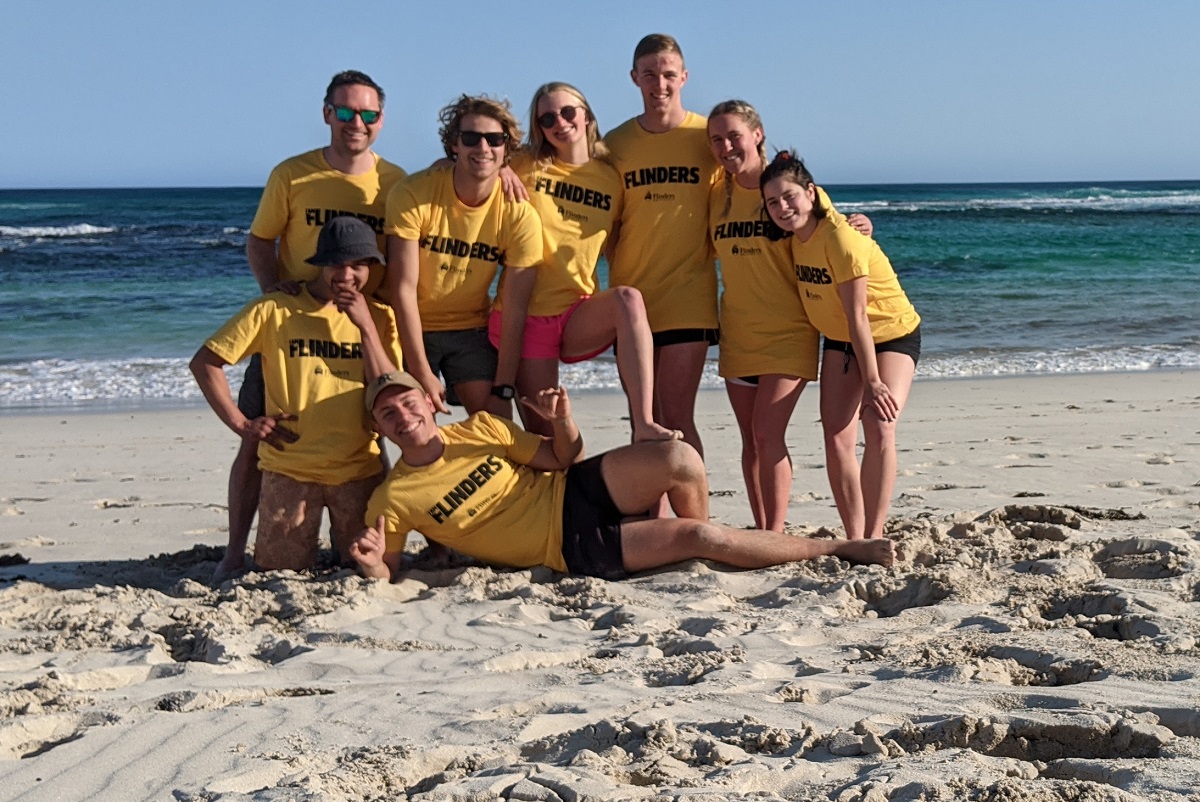
Supporting endangered dunnarts and witnessing the resilience of nature were among the highlights of a community-focused trip to Kangaroo Island for seven students, as part of the final topic in the outdoor education stream of the Bachelor of Sport, Health and Physical Activity.
The topic, Facilitating Learning and Development in Outdoor Environments, is new in 2020. Students were required to work collaboratively together and with topic coordinator Joss Rankin, to design and participate in the four-day camping trip.
This topic considers philosophies around engaging with the community through outdoor education, while learning from each other in terms of contributions.
Mr Rankin says: “For the trip, students had to engage in the planning, implementation and follow up. They had to consider facilitating learning in outdoor environments while maintaining a safe experience and sustainably engaging with our environments.”
Kangaroo Island was chosen for the excellent opportunity it presented to explore outdoor learning while helping with regeneration after the devastating bush fires earlier this year.
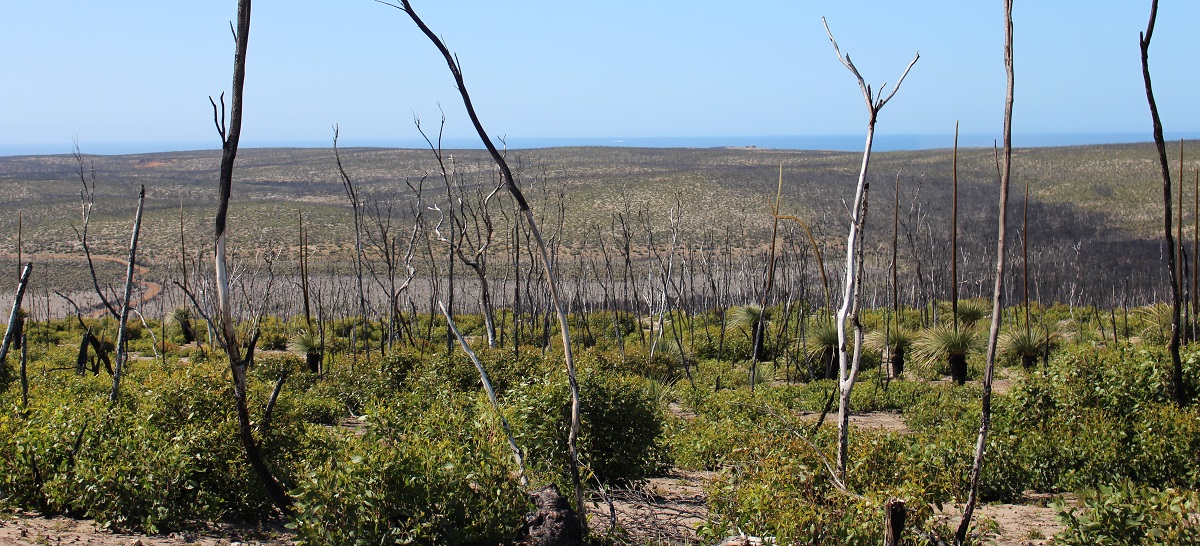
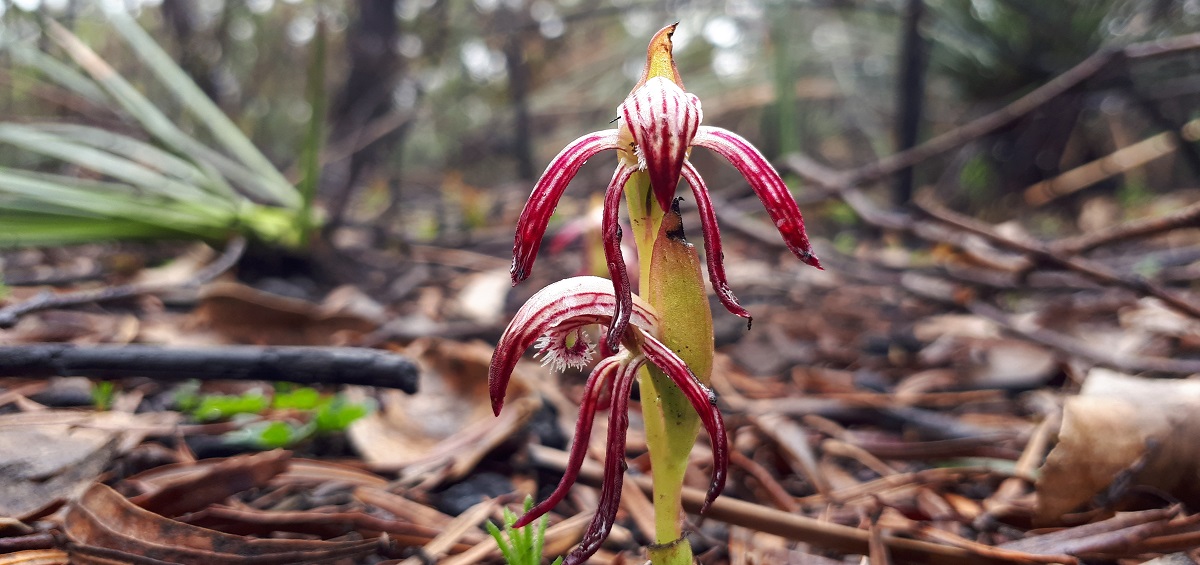
Engagement with the community was vital, aligned with the College of Education, Psychology and Social Work’s dedication “to cultivating bright minds and inspiring innovative, passionate and highly skilled citizens for future ready careers, and delivering connections for life.”
The students met with community representatives to understand the technical and essential capabilities needed to assist with the regenerative work, and to learn from their environmental and community knowledge.
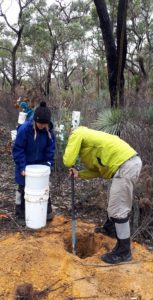
One of the organisations they engaged with was Land for Wildlife, which collaborates with private landholders in the regeneration of flora and fauna. With the Island’s endangered dunnart species at risk after the fires, the volunteer organisation is working hard to provide the marsupials with a safe refuge away from the marsupial’s key predator, feral cats. Before the bushfires, the Kangaroo Island Dunnart population was estimated at around 40, but data is scarce as the shy native animals are difficult to trap and monitor.
“Many of the observation sites were lost in the bushfires, however some footage was captured of dunnarts with young in the areas towards western River and Cape Borda,” Mr Rankin explains. “We spent some time over two days inside the new cat-proof fence zone, digging and setting traps to support the remaining population.”
The trip involved several hikes, scoping out bushwalking activities for potential outdoor education programs.
Camp sites included private property on Pelican Lagoon, where the group repaid the owner’s generosity by helping set up a site for a community garden that would be used for celebratory gatherings and wellbeing activities.
The delegation explored popular attractions within Flinders Chase National Park including Remarkable Rocks and Admirals Arch, considering how environmental issues in these locations could form the base for SACE projects. They also visited Little Sahara and Vivonne Bay in the whirlwind tour.
“Throughout the trip students took on a range of leadership roles, demonstrated a range of capabilities, and considered their views on the pedagogical approaches inherent within outdoor education.” Mr Rankin says.
“They did an outstanding job developing community connections, enhancing their own learning, and engaging in the process before, during and after the experience.”
Participant Scarlett Hosking said she felt humbled upon returning from the trip, as one of the first students to complete the outdoor education stream. “I’ll always be grateful for this journey and how it’s shaped me to be the person I am today and where I am inspired to go next!”
Other students said it had been “so significant to speak with and interact with community,” and that “through this memorable adventure, we have taken away valuable learnings from locals working on the Island that link back to those trip objectives.”
Kangaroo Island community members were likewise delighted with the initiative, including Jenny Teasdale AM, Flinders University liaison person for teacher education, and Dr Bob Teasdale, Deputy Mayor of Kangaroo Island. They congratulated the group on such a “meticulously planned and managed excursion,” adding: “We look forward to further collaboration. Let us not lose the momentum or the enthusiasm generated by your field trip.”
Mr Rankin believes the authenticity of this practical assessment was critical to the student outcomes.
“Seeing our students apply themselves as outdoor educators was so fulfilling.
“Not only did it confirm that we are indeed developing capable and job ready graduates, but more than that, people who are passionate about outdoor education as a means of connection, inclusivity and so many positive outcomes.”
